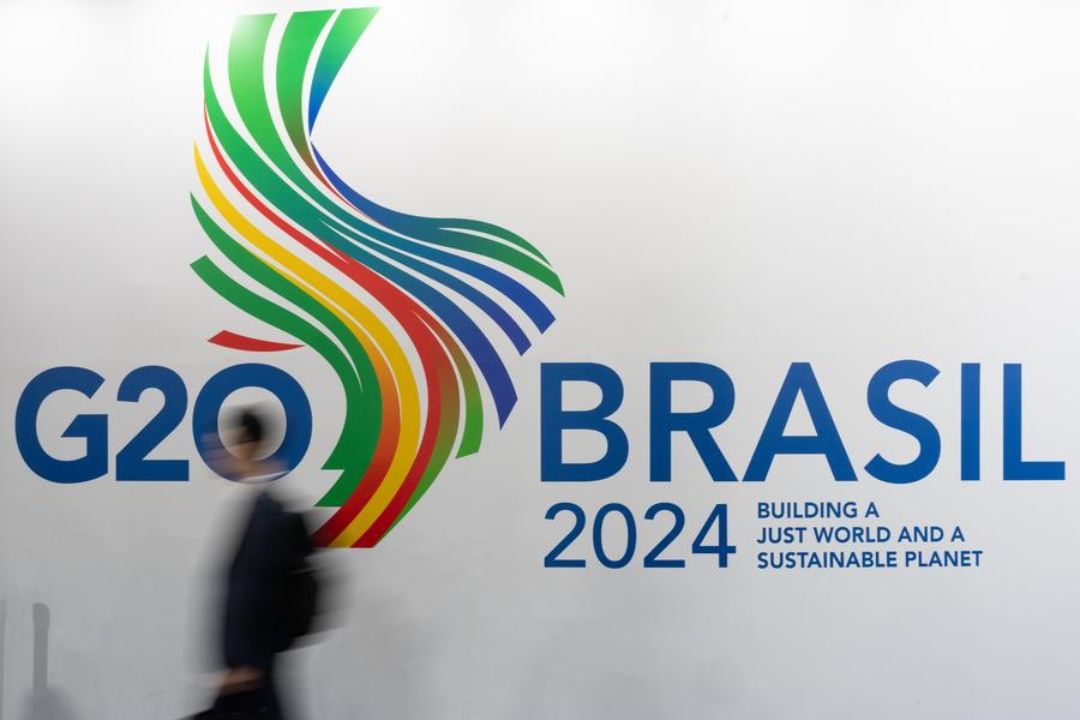
By Evandro Menezes de Carvalho*
The 19th G20 Leaders’ Summit, held in Rio de Janeiro in 2024, marked a crucial moment for the global scenario in a context of economic, climate and geopolitical challenges. Under the leadership of Brazil, the event that brought together delegations from 40 countries brought some progress, but also highlighted the limitations of a forum that seeks to balance such diverse interests from different countries.
This year’s Summit was marked, above all, by the consensus around the Global Alliance against Poverty and Hunger, which was joined by 82 countries. This was one of the central themes proposed by the Brazilian presidency of the G20 in Rio de Janeiro and which had been announced during the G20 Summit in New Delhi. At the time, the Brazilian president had announced the creation of a task force with the aim of raising
resources for the implementation of public policies proven to be effective in reducing hunger and poverty in the world. The aim is to reverse the evident setback in achieving the first two Sustainable Development Goals, namely, the eradication of poverty, zero hunger and sustainable agriculture.
Brazil has legitimate concerns about the issue of poverty and has homework to be done. According to data from the Global Wealth Report 2023, released by the Swiss bank UBS, 48.4% of Brazilian wealth is in the hands of just 1% of the population, the “super-rich”. Brazil is one of the countries with the greatest economic inequality. This Brazilian reality is a mirror of what is seen in the world. According to that Report, around 1% of the global population owns more than 45% of the world’s total wealth, while the poorest 50% own less than 2% of global wealth. According to the United Nations, almost 800 million people are hungry in the world, that is, almost one in ten people does not have enough to eat.
As part of its efforts to tackle the problem of hunger, Brazil managed to include in the Summit’s final communiqué an unprecedented mention of the importance of progressive taxation of the “super-rich”. This proposal had been included in the declaration of the G20 Finance Ministers and aimed to use the resources raised for initiatives to combat hunger and environmental actions. At the G20 Leaders’ Summit, an attempt was made to approve, without success, a proposal for a global minimum tax of 2% on the fortunes of billionaires. This single tax would only reach around three thousand people worldwide and with a potential revenue of around US$250 billion. There was resistance from the United States and Argentina. Despite this resistance, the 19th G20 Summit at least had the merit of placing the issue of taxing the super-rich on the agenda of the world’s main leaders.
But, to solve the problem of hunger, it is necessary to face global inequalities that manifest themselves in different ways and can be evidenced by a series of data and indicators that reflect disparities in wealth, income, access to resources, education and health among people. countries. Thus, for example, life expectancy in rich countries exceeds 80 years of age, contrasting sharply with that of poorer countries, such as Chad (54 years). Countries like Norway have a per capita health expenditure of more than US$9,000 per year, while in the Central African Republic the value is less than US$20 per year. Resource consumption also reflects inequalities. Rich countries emit an average of 14 tons of carbon dioxide (CO2) per person annually. The US per capita emissions rate is twice that of China and eight times that of India. The 10 countries that are the biggest emitters of CO2 are still responsible for 76% of global emissions. Poor countries emit less than 1 ton per capita, but face more severe impacts from climate change. Taking this into account, one of the successes of this 2024 Summit was the joint commitment to accelerate the global energy transition, with a focus on supporting developing countries. Brazil played a central role in proposing financing mechanisms that balanced historical responsibility and present capabilities, including a specific fund to help emerging economies abandon the use of fossil fuels.
Global economic inequality arises from unequal access to resources, infrastructure and development opportunities. This year’s G20 Summit was right to include increasing the participation of countries from the Global South in key institutions as one of its central themes. The creation of a collaboration platform between developing countries for technological innovation and sustainable agriculture, ensuring greater protagonism for southern hemisphere nations in global decisions, as well as the adoption of measures to improve the representation of emerging economies in global financial institutions, such as the IMF and the World Bank were decisions that strengthen South-South cooperation. This G20 adopted a “Roadmap Towards Better, Bigger and More Effective MDBs” with the commitment to promote internal reforms in multilateral banks.
Can we say that these advances justified the purpose of the G20 Summit in 2024? In the current international context, consensuses reached and common initiatives put into practice are reasons to celebrate. But it is important to take into account that the Summit was marked by tensions between great powers, such as the United States, China and Russia. Issues related to the war in Ukraine, global trade and the governance of artificial intelligence have limited concrete advances in these strategic areas. Although progress has been made, environmental organizations have criticized the lack of more ambitious targets for reducing emissions. The lack of consensus on coal phase-out in developed and emerging countries was highlighted as a significant obstacle. Topics such as data market regulation and the impact of technology on employment were largely ignored, reflecting the G20’s difficulty in responding comprehensively to the transformations of the digital economy.
The 19th G20 Summit in Rio de Janeiro was a reflection of the complexities of the multipolar world in which we live. Despite progress in areas such as energy transition and financial reform, geopolitical divergences and the absence of more robust targets on climate issues highlight the forum’s limitations. The summit reinforces the importance of the G20 as a space for global cooperation, but makes it clear that progress will require more effort, negotiation and commitment in the coming years.
*Editor-in-Chief of China Hoje magazine, professor of international law at UFF and FGV.
This text was originally published in China Hoje magazine. Click here, sign up to our community, receive a free digital subscription and access the full content.
Source: https://www.chinahoje.net/19a-cupula-do-g20-pequenos-mas-consistentes-passos-adiante/

